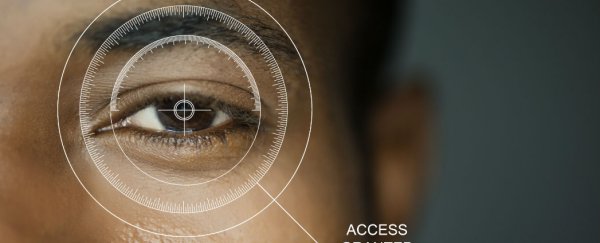Imagine an advertising billboard or a smart door that can recognise you from across the street - that's the futuristic type of technology that's on the way after researchers the US developed an iris scanner that can work at a distance of 12 metres (40 feet).
We're starting to see primitive eye scanners appear in consumer electronics, but this new device takes the innovation one step further. The team from Carnegie Mellon University (CMU) has developed a scanning system that can spot and identify a driver sat in a car, so whether you're traveling through a toll bridge or exceeding the speed limit, the cameras will know who you are.
That brings up a whole series of difficult questions about user privacy and the capabilities of law enforcement agencies across the world. Given a positive spin, it means a dangerous criminal getting spotted ahead of time; seen more cynically, the technology could be used to track citizens without their knowledge.
This long-range iris scanning system is primarily the work of CMU engineering professor, Marios Savvides. As our irises are as distinctive as our fingerprints, the technology is very accurate - but as with fingerprints, your eyeballs will already need to be on file for you to be spotted.
Savvides thinks the technology is helpful rather than scary. "Fingerprints, they require you to touch something. Iris, we can capture it at a distance, so we're making the whole user experience much less intrusive, much more comfortable," he told The Atlantic. "There's no X-marks-the-spot. There's no place you have to stand. Anywhere between six and 12 metres, it will find you, it will zoom in and capture both irises and full face."
If nothing else, it could speed up queues at the airport. But in the wrong hands or used in the wrong way, it could be just as dangerous as it is convenient. There's no chance of these types of biometric technology going backwards, so rigorous laws on how it can be used become increasingly important.
Savvides thinks we're already in a new era of surveillance, and that his invention won't change that. "People are being tracked," he says. "Their every move, their purchasing, their habits, where they are every day, through credit card transactions, through advantage cards - if someone really wanted to know what you were doing every moment of the day, they don't need facial recognition or iris recognition to do that. That's already out there."
Like many recent advancements in biometrics, increased convenience and accuracy comes at a cost - it's all a question of how the technology is used. Just don't be surprised if in the near future your office door spots you well before you reach it.
